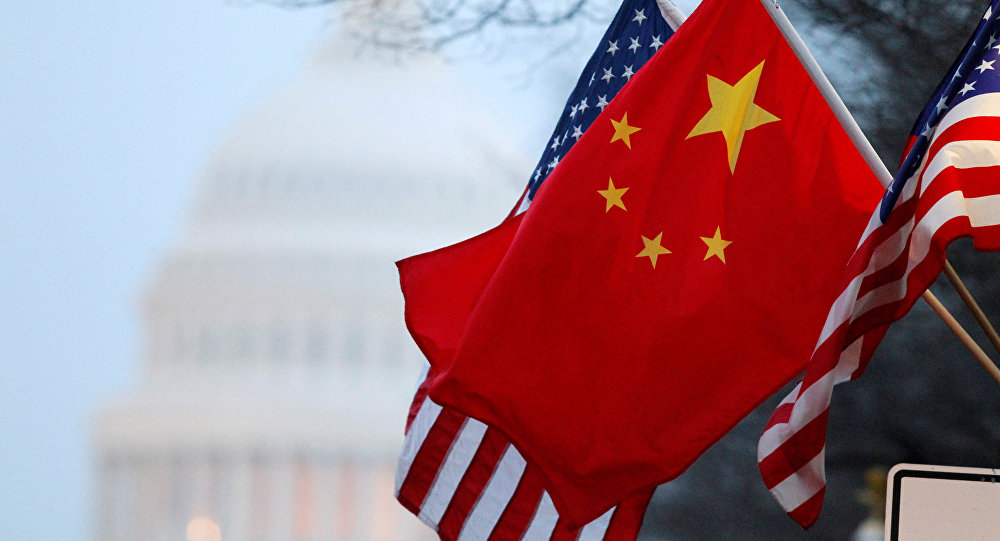China is hoping for a deal to ease the on-going trade war with the US at the upcoming G-20 summit, Chinese Ambassador to the US Cui Tiankai said.
He also warned that if Beijing does not reach a deal and US hardliners keep attempting to separate the world’s two largest economies there would be dire consequences.
Reuters cited Cui Tiankai who said that China and the United States had a shared responsibility to cooperate in the interests of the global economy.
In retort to a question that hardliners in the White House were attempting to separate the US and Chinese economy he said that he didn’t think it was possible or helpful to realize such a scenario.
“I don’t know if people really realize the possible consequences – the impact, the negative impact – if there is such a decoupling.”
He reminded of the tariff wars in the 1930s among industrial economies, which contributed to the collapse of global trade and raised tensions leading up to World War Two.
“The lessons of history are still there. In the last century, we had two world wars, and in between them, the Great Depression. I don’t think anybody should really try to have a repetition of history. These things should never happen again, so people have to act in a responsible way.”
Ciu Tiankai also said that if somehow the current tensions develop into an all-out-conflict the outcome would be “unimaginable” and the two countries should do everything to prevent such a scenario.
Cui said China did not want to have a trade war and sought a negotiated solution.
“We are against any trade war,” the ambassador said, but added that China would “fight to safeguard our own interests.”
“We believe that the key to a negotiated solution to the trade issues is a balanced approach to the concerns of both sides and honestly so far I have not seen sufficient response from the U.S. side to our concerns. We cannot accept that one side would put forward a number of demands and the other side just has to satisfy all these things.”
So far, the US has placed about $200 billion in tariffs on Chinese goods, in part to make Chinese products more expensive so Americans don’t buy them. The administration has also placed steep tariffs on all imported steel, angering other major US trade partners.
In retaliation, China unveiled $60 billion of tariffs on US imports including aircraft and coffee.
On November 27th, US President Donald Trump said that he is likely to go ahead on a further increase in tariffs. The tariffs on $200 billion of goods would be raised from 10% to 25% on January 1st. Trump also said he would hit the rest of China’s imports to the US with tariffs if talks did not go well, which amount to around $276 billion more. “If we don’t make a deal, then I’m going to put the $267bn additional on,” Mr Trump was also quoted as saying. That additional amount would be targeted with a tariff of 10% or 25%.
On the same day, White House chief economist Larry Kudlow claimed that Trump was open to a trade deal with China, but only if he gets concessions.
Trump is to have dinner with Chinese president Xi Jinping on December 1st at the G20 summit. The POTUS also suggested Apple products such as iPhones and laptops made in China and imported to the US could be hit, despite having so far been exempted from the tariffs.
Vox reported that as a result of the trade war numerous agricultural businesses in the US are filing for bankruptcy. Trump proposed the idea of a government program to stabilize the agriculture industry in three ways: by giving farmers direct cash assistance, buying surplus crops and giving them to food banks, and a vague trade promotion program. The stabilization package will use a Depression-era program that allows the government to borrow up to $30 billion from the Treasury without congressional approval, according to the Washington Post.
Regarding speculations that China might dump its US Treasury debt holdings, Cui said that China using them as a weapon is unlikely. He said that such a move would destabilize financial markets.
“This is very dangerous, this is like playing with fire.”
He said Trump and Xi had “a very good working relationship and personal friendship” formed in three previous face-to-face meetings, which had been reinforced in a long phone conversation in early November.
There are likely to be developments during the G-20 and global business is also hopeful of a positive outcome. Currently, delegations that are to participate in the Summit are travelling to Argentina, with some of them already having arrived.





I am wondering if the americans and europeans they understood that the ones who pay for what trump charge to the chinese they are the ones who pay for it, not the chinese.
“There are likely to be developments during the G-20 and global business is also hopeful of a positive outcome.”
There are high expectations that there will be breakthroughs and progress made at the summit.
China will have to wait until after the US coup.
Once the oligarchs have overthrown the current democratic government in the US, it will be business as usual in the land of the Golden Calf.